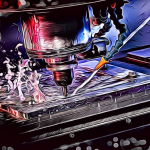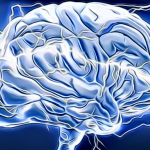Tensorflow
TensorFlow was created to undertake machine learning and deep neural network research by researchers and engineers on the Google Brain team inside Google’s Machine Intelligence Research division. The method is versatile enough to be used in a number of other fields.
Transformers
Hugs Transformers offers hundreds of pre-trained models for a variety of tasks using text, visual, and audio.
These models can be used in a variety of situations, including:
In nearly 100 languages, memo Text is used for activities like as text categorization, information extraction, question answering, summarization, translation, and text production.
framed picture Image categorization, object identification, and segmentation are all tasks that need images.
For tasks like as voice recognition and audio categorization, use speaking head Audio.
PyTorch
PyTorch is a Python module with two high-level capabilities:
Tensor computing with substantial GPU acceleration (similar to NumPy)
A tape-based autograd system was used to build deep neural networks.
When you need to enhance PyTorch, you may utilise your favourite Python packages like NumPy, SciPy, and Cython.
Keras
Keras is a Python-based deep learning API that runs on top of TensorFlow, a machine learning platform. It was created with the goal of allowing for quick experimentation. It’s crucial to be able to get from idea to outcome as quickly as possible when conducting research.
Tesseract
This package includes libtesseract, an OCR engine, and tesseract, a command-line tool.
Tesseract 4 has a new neural net (LSTM) based OCR engine that focuses on line identification, as well as compatibility for Tesseract 3’s heritage Tesseract OCR engine that recognises letter patterns.
When utilising the Legacy OCR Engine option, Tesseract 3 compatibility is enabled (—oem 0). It also requires traineddata files, such as those from the tessdata repository, that support the older engine.
Julia
Julia is a dynamic language for technical computing that is high-level and high-performance.
Julia’s main homepage can be found at julialang.org. The Julia source code may be found on GitHub, along with instructions for building and installing Julia.
Caffe
Caffe is a deep learning framework that prioritises flexibility, performance, and modularity.
Berkeley AI Research (BAIR)/The Berkeley Vision and Learning Center (BVLC) and community contributors are working on it.
There is no age limit for starting your business, Just mind your own business
KP
“Dedication, Determination and Discipline – Growth” – KP
What is meant to be, Will always find a way
KP
Helping Hands.


